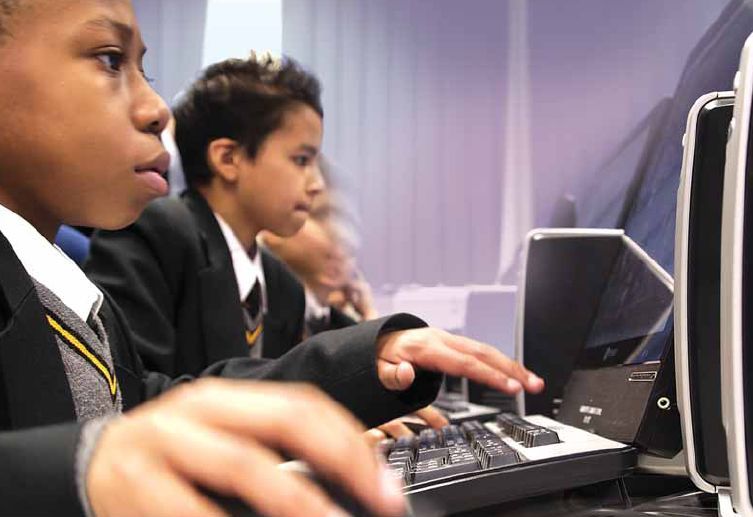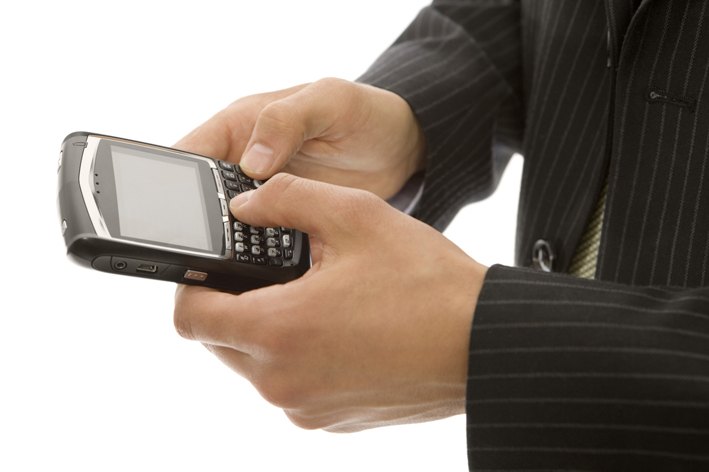Taxpayers' Alliance hits out at schools' "wasted" tablet investments
Campaign group claims schools are failing to make best use of technology.

The TaxPayers' Alliance (TPA) has cited the use of tablets and interactive whiteboards in schools as an example of wasted Government investments.
The 2013 edition of the campaign group's annual Bumper Book of Government Waste report, lists a serious of "useless projects" that it claims have wasted 120 billion of taxpayers' money.
These include public sector procurement initiatives, outsourcing deals, trade union subsidies and lost military equipment.
Good teachers should inspire children to learn, not the latest iPad.
The report then goes on to claim that the use of tablet computers, educational games and interactive whiteboard have contributed 450 million towards the waste pile, as there is "little or no evidence" to suggest having access to these technologies benefits students.
According to recent figures from the British Educational Suppliers' Association (BESA), 100,000 tablets were being used in schools across the UK last year.
The 450 million figure quoted by the TPA actually comes from a November 2012 report by educational charity Nesta, who lambasted schools for failing to tailor their tech investments to the way children like to learn.
Speaking to IT Pro, John O'Connell, research director at the TPA, said tablets and whiteboards can be of "huge" educational value to students, but only if they are used in the right way.
Sign up today and you will receive a free copy of our Future Focus 2025 report - the leading guidance on AI, cybersecurity and other IT challenges as per 700+ senior executives
"As the [Nesta] report we cited said, too often schools bought this stuff and children are simply making notes with [tablets], or whiteboards aren't being used to their potential," he said.
"Technology in schools is not a bad thing per se, but it should be purchased with a clear purpose in mind."
He also claimed that technology is no substitute for good teaching when it comes to inspiring children to learn.
"I believe that schools should focus on academic rigour, and that may mean using old-fashioned pen and paper, but that's not to say that technology has no role," he explained.
"But there should not be an assumption that shiny gizmos will keep kids engaged. Good teachers should inspire children to learn, not the latest iPad."
Nick Madhavji, managing director of education-focused IT supplier Joskos Solutions, told IT Pro that tablets can be a great aid to learning, as long as teachers are confident using them and schools have the infrastructure in place to support them.
"We're regularly being contacted by schools that are having problems with their mobile devices, and a lot of the time it's because they've invested in the glamorous bits [the tablets]...without investing in the backend, switching and wireless access," he explained.
And, with a classroom of children all fighting to connect to the network at once, sub-par network investments can result in a poor user experience and disengaged students, he warned.
"From a teacher's perspective, if you have 30 children in a classroom and some are suffering from really slow YouTube experiences, you've got children that could potentially become disruptive or lose focus," he said.
"That's why sometimes teachers might be tempted to take a safe option with these devices, [and] use them in quite a conservative manner and not, perhaps, to their full potential.
"A planned, well-implemented, robust infrastructure and training for teachers on how to make effective use of the devices can make all the difference," he added.
Daley Robinson, group marketing director of education-focused IT supplier Stone Group, said schools that allow children to take "personal ownership" of their devices tend to have a higher success rate with tablets.
"There is some academic work to support this, as the University of Hull found that tablet deployments are most successful when they're done on a one-to-one basis, so personal ownership of the device really is the most important thing," he told IT Pro.
"It improves levels of motivation, interest and engagement, and...when you look at personalised learning and outcomes, that's when you're going to get most value out of the investment."
He also backed Madhavji's view that access to a good wireless connection is a key requirement for a successful tablet deployment project.
"[Schools] want the shiny new technology, and they don't always see the connectivity piece [as important], and is the part that's often most difficult to get right," Robinson added.
-
 Trade body urges UK government to speed up National Semiconductor Strategy
Trade body urges UK government to speed up National Semiconductor StrategyNews Trade body techUK has urged the UK government to accelerate the implementation of the National Semiconductor Strategy.
-
 US lawmakers call for restrictions on software exports to Chinese chip companies
US lawmakers call for restrictions on software exports to Chinese chip companiesNews US government needs broader, systemic restrictions to avoid Chinese military innovation, says letter
-
 HP airs concerns over Government SMB IT deals
HP airs concerns over Government SMB IT dealsNews Tech giant has reportedly written to the Treasury to outline its concerns about the Government's ongoing SMB supplier push
-
 Government Compliancy in the IT Sector
Government Compliancy in the IT SectorIn-depth Compliance is paramount to government IT installations; Max Cooter explains why.
-
 BlackBerry 7 OS certified to carry 'Restricted' UK government information
BlackBerry 7 OS certified to carry 'Restricted' UK government informationNews Canadian manufacturer retains foothold in the enterprise market.
-
 NAO: Police mobile rollout failing to deliver
NAO: Police mobile rollout failing to deliverNews The police are not getting enough benefits from the Mobile Information Programme, the NAO says.
-
 GCHQ says BlackBerry is safest
GCHQ says BlackBerry is safestNews GCHQ division CESG says BlackBerrys are the safest phones for sensitive Government data, as it offers smartphone security guidance.
-
 House of Lords leads Commons in mobility
House of Lords leads Commons in mobilityNews Android and Apple devices could change parliamentary business as the Houses come to terms with the cloud.

